Dianne Morales Believes in New York—Does it Believe in Her?
The NYC mayoral candidate and former nonprofit executive insists that, in a field of more than 30 hopefuls, she has the vision and the lived experience to pull this city out of its current crisis.

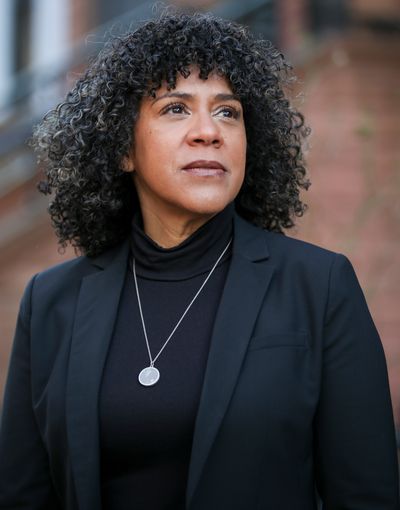
In her head, she envisioned a big, festive event. Celebratory. Perhaps in a park, or on a brownstone-lined street, the sun streaming through the trees. People of all races, religions, and backgrounds—the people she seeks to represent—would flood together in Bedford-Stuyvesant, Brooklyn, the neighborhood where she grew up, and she, Dianne Morales, a girl who was poor and didn’t know it, now a woman rich in the perspective that comes from a life spent proving people wrong, would stand on a platform and declare that she was a candidate for mayor of New York City—a city brimming with possibility, but one that has yet to live up to its potential as the greatest in the world.
Instead, on November 19, 2020, Morales found herself announcing her plan to 140 people. Over Zoom.
Part of Morales’s charm is her raw determination. As an Afro-Latina single mother of two with little name recognition running in a field of more than 30 candidates, Morales, 53, knew that even a full-on, in-person, big-rallies, shaking-hands-on-the-subway campaign—in other words, a pre-pandemic campaign—would have been a long shot.
But a virtual campaign? Run from her computer?
And yet, despite what the headlines—or lack thereof—say about her “viability,” her campaign has exceeded expectations. With an average contribution of $10, Morales's campaign has raised more than $400,000. Thirty percent of those donors are unemployed.
She did everything she could think of to make the Zoom announcement festive and celebratory. There was a pre-party, where guests stirred up a “Morales Mule” in their own kitchens from a recipe sent around beforehand. There was a 42-minute video introducing Morales to voters. Morales's parents; her son, 22; daughter, 20; and her partner sat together at her home in Bed-Stuy and watched Morales projected on their big screen, where she shared her vision for reimagining the city: She would defund the NYPD. She would guarantee housing for all. She would desegregate schools, develop a green agenda.
It was odd, seeing herself on the screen in her living room. “I have a hard time watching myself,” Morales laughs.
Stay In The Know
Get exclusive access to fashion and beauty trends, hot-off-the-press celebrity news, and more.
That living room is also campaign headquarters. Her office—a desk in the corner—is where she often spends more than 10 hours each day strategizing, participating in mayoral forums, and leading her team of five and core of volunteers. On her desk: a computer, a ring light, and a picture of her Grandma, with whom she shared a bed as a child. (“The first time I slept in a room by myself was as a college freshman,” Morales says.)
On the floor, artwork leans against the walls. Across the room: an esthetician's fridge, where instead of beauty products Morales stores carrots and cheese sticks.
“It’s kind of janky, as my kids say,” Morales says of the setup. “I joke all the time like, Oh yeah, I'm sure this is just like every other mayoral candidate.”
The office—okay, it’s a little janky. But when Morales talks about the issues, and the problems she can fix, and the people, it's clear she's in this thing to win it, exemplifying a truly people-powered campaign. Like all those $10 donations. New Yorkers who don’t have jobs, giving her money.
We know that a lot of people who struggle the most often feel like electoral politics doesn't impact their lives. But these folks...there's something about this campaign that makes them feel hopeful.
“That's really disturbing, right? It's heart-wrenching, but it's also really, really powerful,” Morales says. “Thirty percent of our people don't have a job, but they still want to invest in this thing. We know that a lot of people who struggle the most often feel like electoral politics doesn't impact their lives. But these folks...there's something about this campaign that makes them feel hopeful.”
What is that, exactly? What is it that gives Morales herself hope? Even in a town where anything can happen, and where long shots become winners, Morales would appear to be among the longest of shots. And yet there she is, every day: seven hours, eleven hours, staring at the screen, telling people how she’s going to save her city, their city. How everyone’s going to get a fair shot.
Before she could help others, Morales would have to learn how to help herself.
Her parents are working-class immigrants from Puerto Rico. Morales grew up with two sisters nearly a decade older than her, and the gap often made her feel like an only child. Watching her sisters attend the same schools and do a lot of the same things as each other, Morales saw no reason to follow.
“At the age of 10, I was like, ‘Well, why do I have to do it just like they did it?’ My mom talks about that as being the moment when she was like, 'Oh, this one's going to be trouble' because I was just questioning things that they didn't really have the answers for,” Morales says. “And that ended up leading me to places like Stuyvesant High School.”
Stuyvesant is one of the nine specialized high schools in New York City that cater to gifted students and require something called the Specialized High Schools Admissions Test to get in—one of the barriers to access Morales is hoping to fight as mayor. When Morales's eighth grade teacher called her mom and suggested she apply, Morales had no idea what what the school was.
“That opened up a whole world to me,” she says. “And in doing that also made me aware of some of the inequities. I was just kind of like, Oh, wow. I think we might be poor. I started questioning the world and I felt at the same time a sense of guilt, like, Why me? Why was I getting these opportunities that a lot of kids I was growing up with weren't getting? and trying to figure that out.”
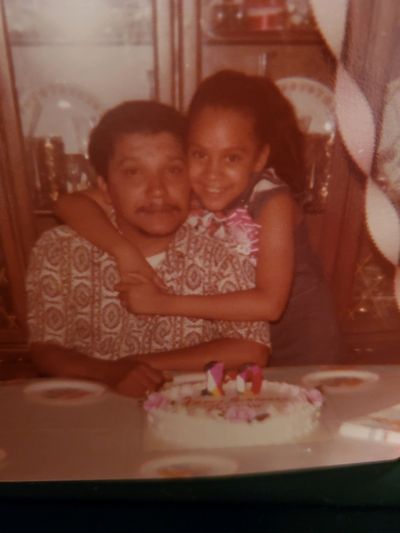
Dianne and her father on her 10th birthday.
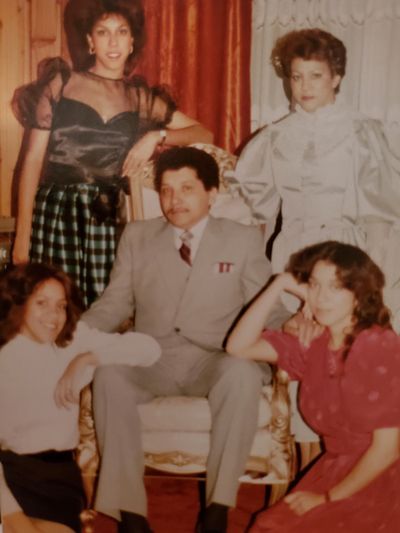
Dianne (bottom left) at 15 years old with her parents and sisters in 1982.
When it was time to apply for college, a guidance counselor told her to “stick to the state schools and the city schools.” Which of course made Morales want to do the opposite. She was accepted early admission to Dartmouth College.
The tree-lined quads and old stone buildings were nice, but as a first-generation “low-income city kid of color in the middle of nowhere in New Hampshire,” Morales was miserable before classes even started. And then, in her first week on campus, she was sexually assaulted.
“I thought that that's what college was in this country, and I assumed that I just wasn’t meant for college,” she says. “I did terribly because of all of the effects of everything. I lost my scholarship. I left there [after one year] with my head hanging low.”
Morales has not spoke about her assault before, publicly. “Intellectually, I know that it is not something that one should be ashamed of or stigmatized by, especially these days,” she says. “And yet it is really, really difficult to overcome the emotional and psychological weight of that—and what you fear people might do with that disclosure.”
In the spring of freshman year, right before she would leave Dartmouth, Morales was looking for a summer job and came across a newspaper clipping about a residential camp for inner-city kids. She was mesmerized by it.
As she was reading the piece, a career advisor came by and discouraged her from applying to the program, telling her to take an internship at a bank or a law firm instead. When the advisor left to get more information on whatever she thought Morales should be doing, Morales pocketed the clipping and called the residential camp, known today as Ramapo for Children. They hired her on the spot.
She worked there six years and now sits on the board.
In late September of that year, Morales found herself back home in Bed-Stuy, not knowing what she would do next. One day, she got into an argument with her mom and drove off. She drove and drove—pre-GPS—and somehow ended up at Stony Brook University, on Long Island, part of New York’s public university system.
She parked the car. And then, for reasons she can’t explain, walked into the admissions office.
The semester had already started, but Morales went up to the receptionist and asked to speak to someone, anyone. “She was like, 'Sure, let me have your paperwork,'” Morales recalls. “And I was like, 'What do you mean?' And she said, 'Well, your transcript and your...'—all those things. Needless to say, I didn't have any of that.”
The receptionist started to turn away from her, and Morales panicked, but just then a tall man came out from behind a door and asked Morales what he could help her with. An hour later, she had conditional acceptance. She moved on to campus with her belongings in garbage bags the next day.
When she graduated with honors a few years later, she left a copy of her degree on the tall man’s desk, in appreciation.
Forty minutes is a long drive at 2 a.m. Morales was working as a waitress a few nights a week at an Italian restaurant in Sheepshead Bay, 40 minutes from her home, earning enough money so that she could live on her own. During the days, she was a temporary per diem (TPD) special education teacher at the same public school where she had gone to kindergarten. Some days, she wouldn’t get home until three o’clock in the morning and have to be at school at 7:30 a.m.
One morning, as she prepared to work with the day’s class, an assistant principal said to her, “I don't care what you do with those kids. Just keep them in the classroom, keep the door shut, and keep them quiet.”
You know what happened next. “I was outraged and also hurt for my kids,” Morales says. “These kids' educational destiny is in the hands of people that don't care. It was in that moment that I decided I needed to figure out how I could come back, how I could be her boss—literally. How do I come in at a different point in the system, so that I can intervene, and keep people like that from being able to impact our kids' lives?”
Morales had helped herself find a way into a good school where she felt nourished, and she’d found meaningful work. She had helped a classroom full of kids. She wanted to help more. The young woman who had been told so many times to aim low earned a Master of Social Administration from Columbia University and later a Master of Education Administration from Harvard.
My real belief is that the people should be the ones that are driving the change and leading. So, that's where I wanted to be—with the people.
Now she could help a lot of people, and she wasted no time. Morales was a founding member of Jumpstart, a national early education organization that provides programming for preschool children from under-resourced communities. She served as executive director of The Door, a youth development program for New York City kids. And for nearly a decade, Morales was executive director and CEO of Phipps Neighborhoods, a community organization that helps low-income families in the South Bronx rise above poverty primarily through career development and education.
She finally had stability, she says. And job security. She was helping families across an entire borough. Then some people mentioned that another job would be opening up: mayor.
Friends and colleagues who were involved in electoral politics had been urging Morales to run for office for nearly a decade, but Morales always dismissed the idea. “My real belief is that the people should be the ones that are driving the change and leading. So, that's where I wanted to be—with the people,” she says.
But then, the 2016 election happened, followed by the 2018 midterm elections, and that's when Morales started to think about how she could make a larger impact. In the spring of 2019, Morales and a group of trusted friends, whom she felt had valuable perspectives, scheduled an informal roundtable to discuss the pros and cons of her running.
At the end of the four-hour conversation, the consensus was clear. She filed in June.
Once considered a promising progressive candidate, current New York City mayor Bill de Blasio will finish his eight-year term with empty promises. In an effort to appeal to voters, the 2021 mayoral candidates are increasingly distancing themselves from de Blasio. Morales has ties to the administration, having served on its Community Schools Advisory Board and its Nonprofit Resiliency Committee, which aims to “offer opportunities for collaboration and to expand lines of communication between the City and the nonprofit human service sector.”
Since launching her candidacy, Morales had made it clear that she isn't here for the mayor's performative policies. “The biggest frustration was that those groups [I served on] felt symbolic more than anything,” says Morales, who isn't afraid to criticize the men currently in charge, including Governor Andrew Cuomo. “It didn't feel like the input or the advice or the feedback of those groups was genuinely valued, much less implemented. I think that it was a critical part of what went wrong with [de Blasio's] administration...because I don't think he really genuinely gave the community a voice at the table.”
Morales believes her life's work separates her from the other candidates on the left. And, throughout her campaign, she remains on the ground beside those very communities she's impacted. In March 2020, she joined a mutual aid network known as Bed-Stuy Strong to help support the community during the COVID-19 crisis. In January of this year, she stood in solidarity with the essential workers at the Hunts Point Produce Market in the South Bronx as they fought for fair pay.
During a Black Lives Matter protest last summer, she watched her children be pepper-sprayed by police. Her son was physically assaulted. (Morales testified about her experience for New York Attorney General Leticia James's lawsuit against the NYPD, filed in January 2021.)
Morales was the first candidate to call to defund the police.
“We know that communities that are heavily policed are not safer,” she says. “We know that police do not prevent crime. They're called to respond to crime, and we know that a large percentage of the calls that police respond to are not, in fact, even crimes in progress. They're issues of homelessness, of mental health challenges, of substance abuse, or even traffic violations.”
Morales says the overarching issue is public safety, which requires a shift in budget that reflects the city's values. As mayor, she wants to redefine what public safety can look like. That includes providing people with what she feels they need to live safely: housing, economic relief, and health care.
Not everybody is ready for, or wants, bold change. Morales knows this. She's also cognizant of the critique that her campaign “dismisses the wealthy,” who contribute significantly to the city's tax revenue. Morales disagrees, stating that she simply doesn't want people to feel a false sense of complacency after the year 2020 dealt us. To create a new New York City, it takes all of us.
In a crowded mayoral race, creating that new New York will require endorsements (Downtown Independent Democrats, State Assemblymember Jessica González-Rojas, Coalition for a District Alternative, New York State Senator Gustavo Rivera, NYC Council District 15 candidate Elisa Crespo, and more have officially endorsed Morales), money (Morales's campaign is enrolled in the NYC Campaign Finance Program and is on track to hit the March 11 threshold to qualify for 8:1 public matching funds), and ultimately, a number one choice on the ballot. For the first time in the city's history, New Yorkers will participate in a ranked-choice voting system in the primaries—a process that allows voters to choose up to five candidates in order of preference. The candidate who gets a majority of votes moves on to the general election.
Despite the recognition and funds some of the political bold-faced names (read: former Democratic presidential candidate Andrew Yang and New York City Comptroller Scott Stringer) have received, Morales isn't worried about getting on the ballot. What she is concerned about is walking the line of connecting with voters and keeping people safe (she hasn't had an in-person fundraiser since March 2020). Per NYC law, Morales is required to collect in-person petition signatures from 2,250 registered Democrats by March 22 to qualify for the ballot, a rule that was recently contested in court but dismissed. Between the mayoral race and other citywide races, Morales calls in-person petitioning “a super spreader event lying in wait.” Her campaign says it is taking all of the necessary precautions to safely gather signatures.
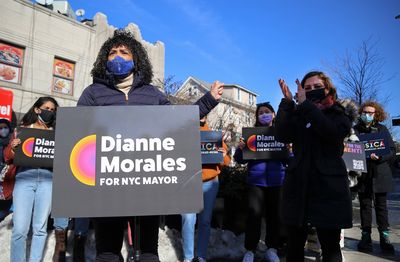
Morales attends an event where New York State Assemblymember Jessica González-Rojas endorses her for mayor.
Regardless of the challenges, Morales still wakes up every morning believing she is one day closer to City Hall. As a woman of color, Morales says she doesn’t have the luxury of thinking about what it looks like to not make it. Instead, she chooses to “move through the world with a vision of what’s possible.” That vision comes from the people—even if they’re mainly showing up in tiny boxes on her computer screen these days.
“One of the things that I ground myself in every morning is gratitude. And then I remind myself that I am exactly where I'm supposed to be in terms of my path and that this is something that's bigger than me. It’s a bigger, longer term thing that is outside of me, but through me.”
So there she was earlier this month, standing outside in the 28-degree sun, in her purple parka and her rainbow scarf and her “Dianne Morales for NYC Mayor” face mask, with her ungloved finger pointed into the air, scaffolding overhead, people shouting “That’s right!” as she put forth her purpose. “Our government and our leaders have divested from our communities. We have seen the devastating impact of that divestment...It is time for us to get what we deserve.”
And then, there she was that night, warm inside her campaign headquarters, the ring light bouncing off her curls and a heated blanket on her lap—hosting Zooms, chatting with supporters, emailing staff, speaking, listening, typing until there was nothing more she could do that day. There would be more to do tomorrow. Because people need help, and she can help them.
RELATED STORY
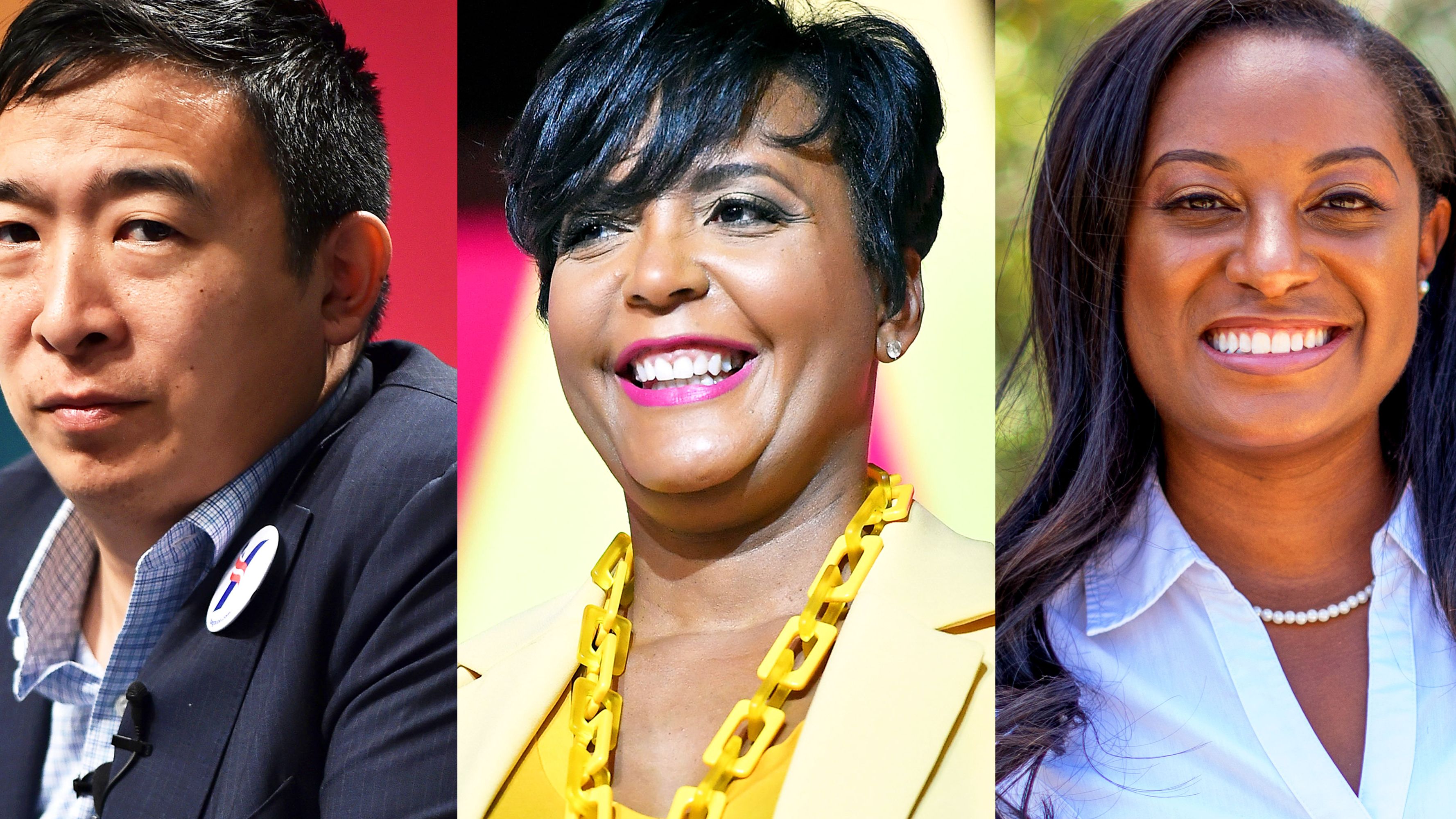
Rachel Epstein is a writer, editor, and content strategist based in New York City. Most recently, she was the Managing Editor at Coveteur, where she oversaw the site’s day-to-day editorial operations. Previously, she was an editor at Marie Claire, where she wrote and edited culture, politics, and lifestyle stories ranging from op-eds to profiles to ambitious packages. She also launched and managed the site’s virtual book club, #ReadWithMC. Offline, she’s likely watching a Heat game or finding a new coffee shop.
-
 Let's Go, PPG, Fans! A New Peacock Series Starring the 'Love Island USA' Season 6 Cast Is Coming Soon
Let's Go, PPG, Fans! A New Peacock Series Starring the 'Love Island USA' Season 6 Cast Is Coming SoonWe're already clearing our summer schedules for 'Love Island: Beyond the Villa.'
By Quinci LeGardye
-
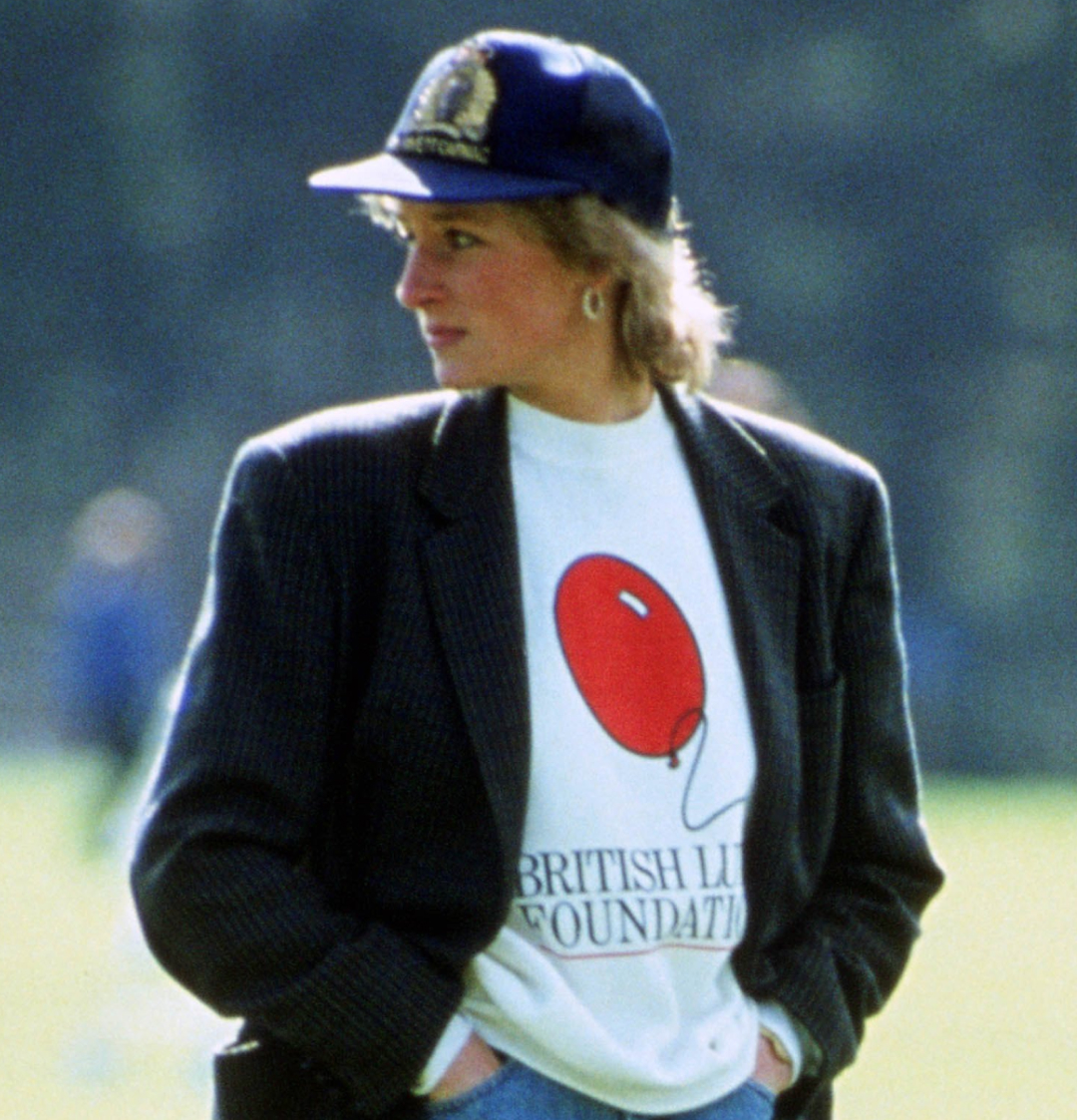 Why Princess Diana Didn't Move to America
Why Princess Diana Didn't Move to AmericaThe late royal's friend opened up about the princess's American dream.
By Kristin Contino
-
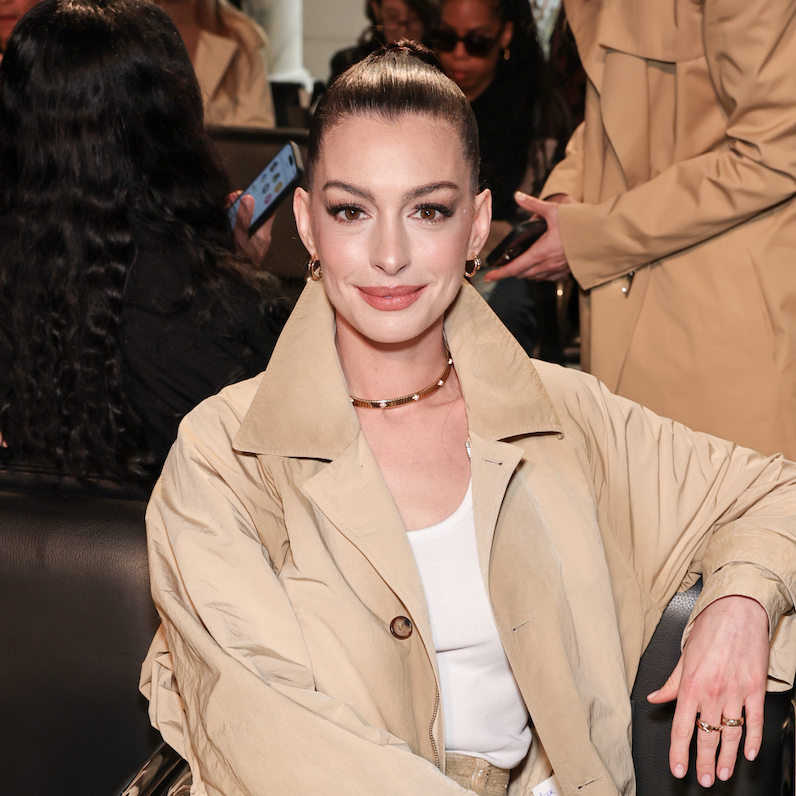 Anne Hathaway Doubles Down on Luxury's Favorite Neutral
Anne Hathaway Doubles Down on Luxury's Favorite NeutralShe painted herself in the timeless hue.
By Kelsey Stiegman
-
 36 Ways Women Still Aren't Equal to Men
36 Ways Women Still Aren't Equal to MenFeatures It's just one of the many ways women still aren't equal to men.
By Brooke Knappenberger
-
 How New York's First Female Governor Plans to Fight for Women If Reelected
How New York's First Female Governor Plans to Fight for Women If ReelectedKathy Hochul twice came to power because men resigned amid sexual harassment scandals. Here, how she's leading differently.
By Emily Tisch Sussman
-
 Why the 2022 Midterm Elections Are So Critical
Why the 2022 Midterm Elections Are So CriticalAs we blaze through a highly charged midterm election season, Swing Left Executive Director Yasmin Radjy highlights rising stars who are fighting for women’s rights.
By Tanya Benedicto Klich
-
 Tammy Duckworth: 'I’m Mad as Hell' About the Lack of Federal Action on Gun Safety
Tammy Duckworth: 'I’m Mad as Hell' About the Lack of Federal Action on Gun SafetyThe Illinois Senator won't let the memory of the Highland Park shooting just fade away.
By Sen. Tammy Duckworth
-
 Roe Is Gone. We Have to Keep Fighting.
Roe Is Gone. We Have to Keep Fighting.How To Democracy always offers a path forward even when we feel thrust into the past.
By Beth Silvers and Sarah Stewart Holland, hosts of Pantsuit Politics Podcast
-
 The Supreme Court's Mississippi Abortion Rights Case: What to Know
The Supreme Court's Mississippi Abortion Rights Case: What to KnowThe case could threaten Roe v. Wade.
By Megan DiTrolio
-
 Sex Trafficking Victims Are Being Punished. A New Law Could Change That.
Sex Trafficking Victims Are Being Punished. A New Law Could Change That.Victims of sexual abuse are quietly criminalized. Sara's Law protects kids that fight back.
By Dr. Devin J. Buckley and Erin Regan
-
 My Family and I Live in Navajo Nation. We Don't Have Access to Clean Running Water
My Family and I Live in Navajo Nation. We Don't Have Access to Clean Running Water"They say that the United States is one of the wealthiest countries in the world. Why are citizens still living with no access to clean water?"
By Amanda L. As Told To Rachel Epstein